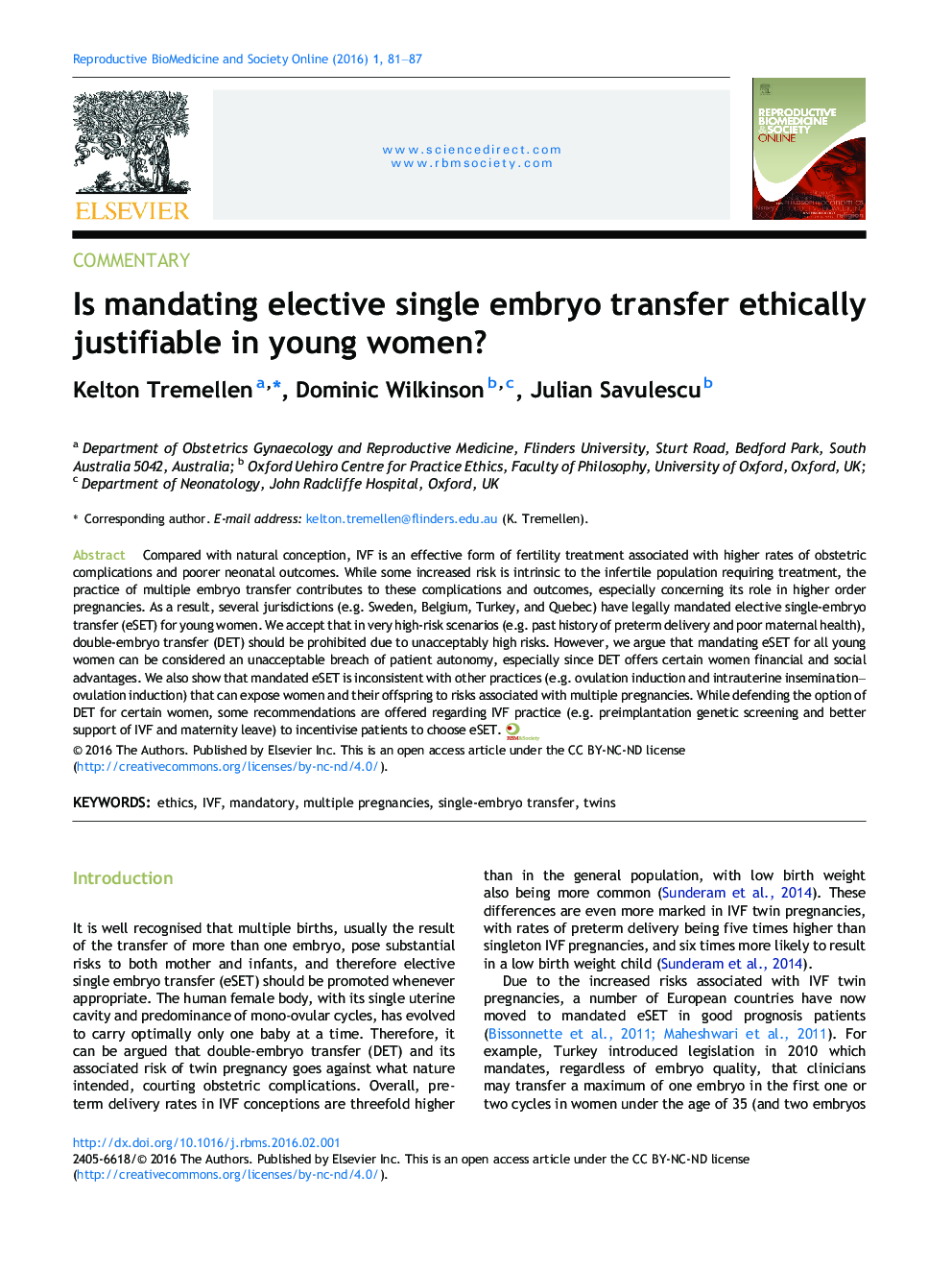| Article ID | Journal | Published Year | Pages | File Type |
|---|---|---|---|---|
| 1090078 | Reproductive Biomedicine & Society Online | 2015 | 7 Pages |
Compared with natural conception, IVF is an effective form of fertility treatment associated with higher rates of obstetric complications and poorer neonatal outcomes. While some increased risk is intrinsic to the infertile population requiring treatment, the practice of multiple embryo transfer contributes to these complications and outcomes, especially concerning its role in higher order pregnancies. As a result, several jurisdictions (e.g. Sweden, Belgium, Turkey, and Quebec) have legally mandated elective single-embryo transfer (eSET) for young women. We accept that in very high-risk scenarios (e.g. past history of preterm delivery and poor maternal health), double-embryo transfer (DET) should be prohibited due to unacceptably high risks. However, we argue that mandating eSET for all young women can be considered an unacceptable breach of patient autonomy, especially since DET offers certain women financial and social advantages. We also show that mandated eSET is inconsistent with other practices (e.g. ovulation induction and intrauterine insemination–ovulation induction) that can expose women and their offspring to risks associated with multiple pregnancies. While defending the option of DET for certain women, some recommendations are offered regarding IVF practice (e.g. preimplantation genetic screening and better support of IVF and maternity leave) to incentivise patients to choose eSET.
